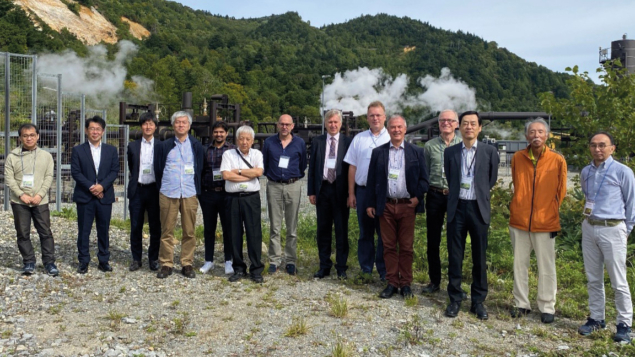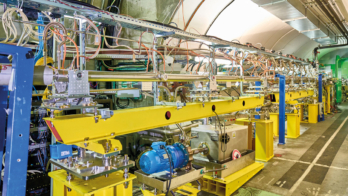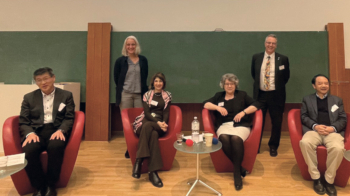
The world is facing a crisis of anthropogenic climate change, driven by excessive CO2 emissions during the past 150 years. In response, the United Nations has defined goals in a race towards zero net-carbon emission. One of these goals is to ensure that all projects due to be completed by 2030 or after have a net-zero carbon operation, with a reduction in embodied carbon by at least 40% compared to current practice. At the same time, the European Union (EU), Japan and other nations have decided to become carbon neutral by around 2050.
These boundary conditions put large-scale science projects under pressure to reduce CO2 emissions during construction, operation and potentially decommissioning. For context: given the current French energy mix, CERN’s annual 1.3 TWh electricity consumption (which is mostly used for accelerator operation) corresponds to roughly 50 kt CO2e global warming potential (GWP), while recent estimates for the construction of tunnels for future colliders are in the multi-100 kt CO2e GWP range.
Green realisation
To discuss potential ways forward, a Workshop on Sustainability for Future Accelerators (WSFA2023) took place on 25–27 September in Morioka, Japan within the framework of the recently started EU project EAJADE (Europe–America–Japan Accelerator Development and Exchange). Around 50 international experts discussed a slew of topics ranging from life-cycle assessments (LCAs) of accelerator technologies with carbon-reduction potential to funding initiatives towards sustainable accelerator R&D, and local initiatives aimed at the “green” realisation of future colliders. With the workshop being held in Japan, the proposed International Linear Collider (ILC) figured prominently as a reference project – attracting considerable attention from local media.
The general context of discussions was set by Beate Heinemann, DESY director for particle physics, on behalf of the European Laboratory Directors Group (LDG). The LDG recently created a working group to assess the sustainability of accelerators, with a mandate to develop guidelines and a minimum set of key indicators pertaining to the methodology and scope of reporting of sustainability aspects for future high-energy physics projects. Since LCAs are becoming the main tool to estimate GWP, a number of project representatives discussed their take on sustainability and steps towards performing LCAs. Starting with the much-cited ARUP study on linear colliders published in 2023 (edms.cern.ch/document/2917948/1), there were presentations on the ESS in Sweden, the ISIS-II neutron and muon source in the UK, the CERN sustainability forum, the Future Circular Collider, the Cool Copper Collider and other proposed colliders. Also discussed were R&D items for sustainable technologies, including CERN’s High Efficiency Klystron Project, the ZEPTO permanent-magnet project, thin film-coated SRF cavities and others.
A second big block in the workshop agenda was devoted to the “greening” of future accelerators and potential local and general construction measures towards achieving this goal. The focus was on Japanese efforts around the ILC, but numerous results can be re-interpreted in a more general way. Presentations were given on the potential of concrete to turn from a massive carbon source into a carbon sink with net negative CO2e balance (a topic with huge industrial interest), on large-scale wooden construction (e.g. for experimental halls), and on the ILC connection with the agriculture, forestry and fisheries industries to reduce CO2 emissions and offset them by increasing CO2 absorption. The focus was on building an energy recycling society by the time the ILC would become operational.
What have we learnt on our way towards sustainable large-scale research infrastructures? First, that time might be our friend: energy mixes will include increasingly larger carbon-free components, making construction projects and operations more eco-friendly. Also, new and more sustainable technologies will be developed that help achieve global climate goals. Second, we as a community must consider the imprint our research leaves on the globe, along with as many indicators as possible. The GWP can be a beginning, but there are many other factors relating, for example, to rare-earth elements, toxicity and acidity. The LCA methodology provides the accelerator community with guidelines for the planning of more sustainable large-scale projects and needs to be further developed – including end-of-life, decommissioning and recycling steps – in an appropriate manner. Last but not least, it is clear that we need to be proactive in anticipating the changes happening in the energy markets and society with respect to sustainability-driven challenges at all levels.





